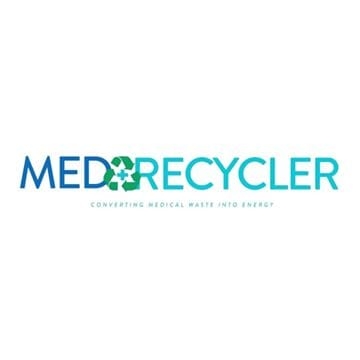WEST WARWICK – A proposal to build a medical waste treatment plant in West Warwick continues to fan flames of opposition.
Dozens of residents, business owners, environmentalist advocates and state and local lawmakers voiced vehement objections to the MedRecycler-RI project in a more than three-and-a-half-hour virtual public hearing hosted by the R.I. Department of Environmental Management on Monday. The hearing, which drew more than 270 attendees, marked the start to a 30-day public comment period, after which the state agency will issue its decision on the requested license.
MedRecycler RI in 2020 submitted its license application to the DEM, detailing plans to build a medical waste treatment plant on Division Road in West Warwick. Up to 70 tons of blood, needles and other medical human and animal waste would be shipped in daily, shredded, dried and treated at high heat using a process known as pyrolysis, which breaks down the waste into gas that can be burned for electricity.
Nicholas Campanella, president and CEO of New Jersey-based Sun Pacific Holding Corp., the parent company for MedRecycler, in the hearing defended the safety and “appropriate” placement of the project in an industrial-zoned site.
“Safety will be our top priority,” he said. “I’m confident the facts will show our proposal is good for Rhode Island.
Campanella in an emailed statement sent to PBN before the hearing Monday also faulted opponents, specifically politicians, for “misleading people.” State lawmakers representing West Warwick and neighboring communities have written press releases and columns citing concerns with the project.
Among other issues, the company disputed the use of the word “burning” in statements made by opponents, because pyrolysis does not require oxygen and is more akin to melting and evaporating than burning.
The process does produce synthetic gas that can be burned for electricity, as well as a flammable tar and a “solid, ash-like material” that will need to be disposed of, according to DEM in its preliminary notice of intent to approve the facility.
However, medical and scientific experts who spoke in the public hearing questioned the health and environmental impact of the project.
“All the literature on pyrolysis is really on non-medical waste,” said Dr. Hina Khan, a medical oncologist with Lifespan who also lives in East Greenwich.
Jim Mullowney, CEO of waste disposal company known as Pharma-Cycle LLC and a self-described “cytotoxic human waste expert,” said that the company has failed to consider the impact of treating chemicals used in common chemotherapy drugs.
“These chemicals will end up in our air, in our soil in our bay, in our drinking water,” Mullowney warned.
The only other medical waste treatment facility that uses pyrolysis is in New Mexico, operated by Monarch Waste Technologies.
Kevin Burdis, a staff attorney with Conservation Law Foundation who spoke in opposition to the project on Monday, said that plant has been shut down, although that could not be confirmed.
Opponents also cited problems with the process, noting lack of requisite information in the application as well as necessary approvals from other groups such as the State Planning Council and West Warwick Planning Board.
Peter Skwirz, town attorney for East Greenwich, accused the DEM of “tying itself in knots” to “fast track” the approval.
East Greenwich resident Carey Jeffrey was one of several commenters who likened the proposal to the failed 38 Studios deal. Jeffrey warned that instead of the Boston Red Sox, the company was using the buzzwords of “renewable energy” to curry favor with the state.
R.I. Commerce Corp. in 2019 authorized $17 million in tax-exempt bonds to help the company attract investors, although the approval required the company first receive necessary permits and approvals, various news outlets have reported.
The company in its application highlighted the environmental benefits of the project, generating 1.2 megawatts of energy – enough to power 1,000 homes. However, it will also produce nearly 21,000 tons of carbon dioxide a year, according to the application.
Campanella in a statement touted the project’s creation of green jobs: roughly 20 to 30 permanent positions plus another 100 construction jobs to build out the 48,000-square-foot building.
Joe Walsh, business manager for the Providence chapter of the International Brotherhood of Electrical Workers, was one of few proponents of the project, citing its job creation and tax revenue as reason for his support.
The DEM did not respond to any comments made in the public hearing.
The Feb. 5 notice of preliminary approval, which lays out a host of conditions the company must still meet and additional information required, does not preclude the agency from denying the license, however. The state agency will continue to accept written public feedback for 30 days, with a final decision in the 90 days after the public comment period ends.
The state has two other medical waste facilities in Woonsocket and at Rhode Island Hospital’s Providence campus, according to Gail Mastrati, a DEM spokeswoman. Both were approved more than two decades ago, although they have to renew their permits every three years, Mastrati said in an email.
Information on how many medical waste treatment projects have been denied in that time frame was not immediately available.
Nancy Lavin is a PBN staff writer. You may reach her at Lavin@PBN.com.













